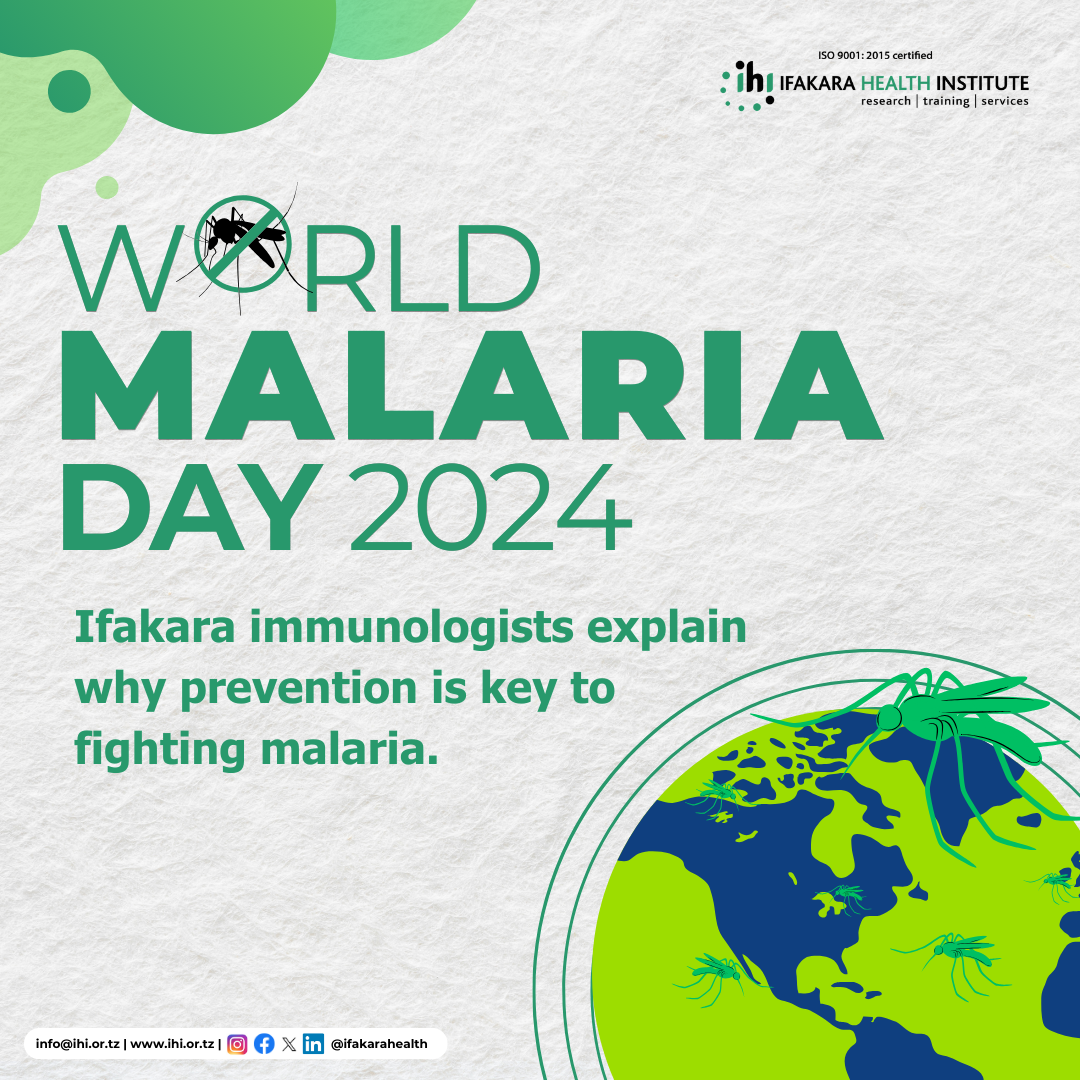
#WMD2024: Ifakara immunologists explain why prevention is key to fighting malaria

On World Malaria Day, which happened to be three days before the International Day of Immunology on April 29th, immunologists at the Ifakara Health Institute stressed the vital role of comprehending our immune system in fighting diseases.
Dr. Ally Olotu, leading a malaria vaccine study in Tanzania and the Director of Science at the Ifakara Health Institute, stressed the urgency of evaluating data and deploying the promising RTS,S and R21/Matrix-M™ vaccines swiftly to protect children in malaria-prone regions.
Late last year, the World Health Organization (WHO) officially recommended for-use the R21/Matrix-M™ vaccine that Ifakara was involved in conducting its clinical trials from 2021-2022 to guard children against malaria infections.
Dr. Anneth Tumbo, also a Senior immunologist at Ifakara, emphasized the diverse immune responses in malaria-endemic areas and the need to understand them comprehensively, including identifying biomarkers of malaria-induced immune aging. Such insights are vital for targeted interventions and monitoring malaria vaccine effectiveness.
For his part, Dr. Maxmillian Mpina highlighted the challenges facing current malaria vaccines and stressed the importance of understanding immunological factors contributing to their modest efficacy. This understanding is crucial for designing more effective next-generation malaria vaccines.
Leading up to the Int’l day of Immunology
To mark the International Day of Immunology, Ifakara immunologists who are also members of the Tanzania Immunology Society held a symposium with the Kenya Society of Immunology from 9:00 AM to 12:00 PM EAST to discuss this year’s theme "Immunity Through the Ages: Navigating the Science of Aging and Immunology."
